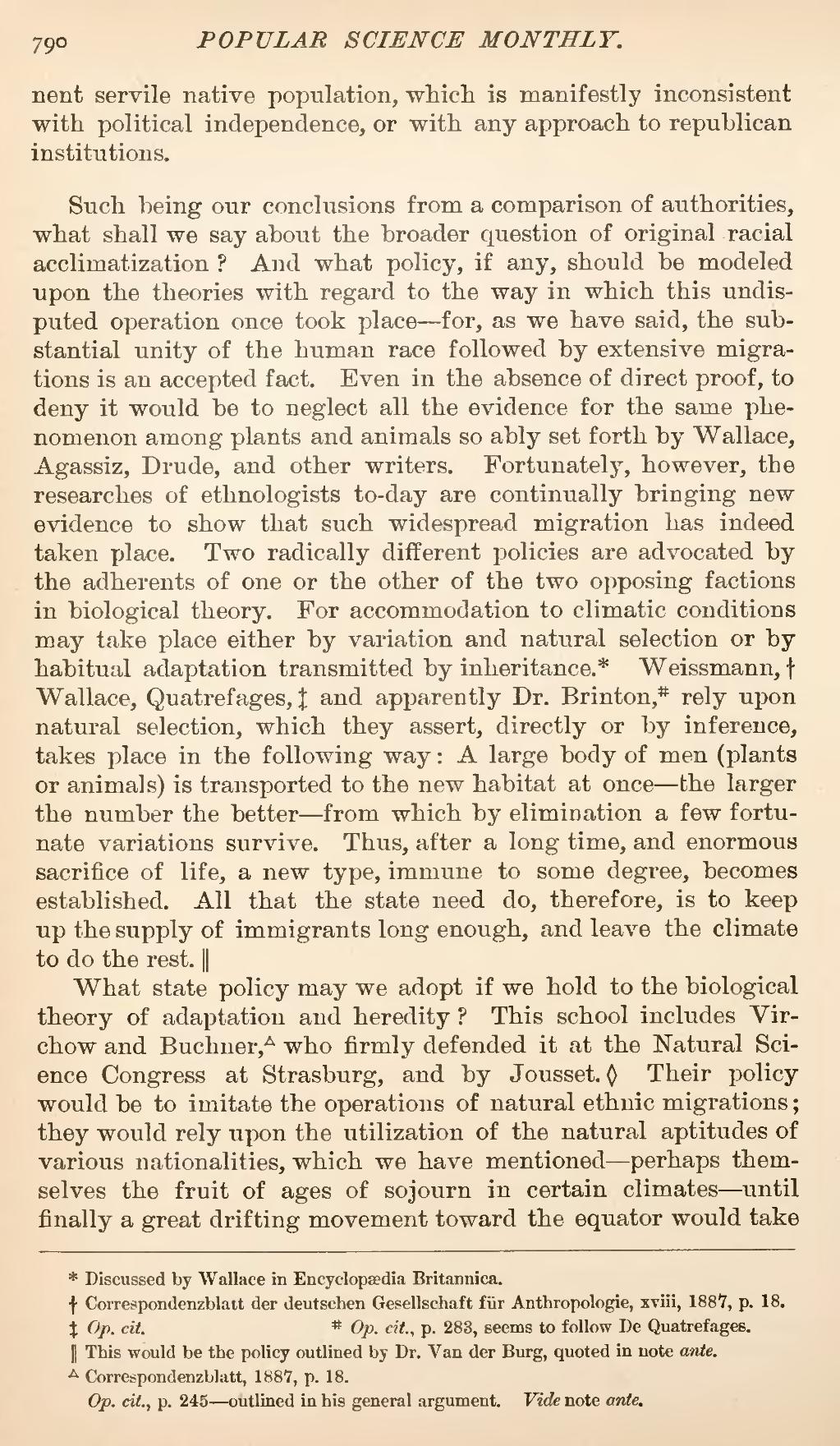nent servile native population, which is manifestly inconsistent with political independence, or with any approach to republican institutions.
Such being our conclusions from a comparison of authorities, what shall we say about the broader question of original racial acclimatization? And what policy, if any, should be modeled upon the theories with regard to the way in which this undisputed operation once took place—for, as we have said, the substantial unity of the human race followed by extensive migrations is an accepted fact. Even in the absence of direct proof, to deny it would be to neglect all the evidence for the same phenomenon among plants and animals so ably set forth by Wallace, Agassiz, Drude, and other writers. Fortunately, however, the researches of ethnologists to-day are continually bringing new evidence to show that such widespread migration has indeed taken place. Two radically different policies are advocated by the adherents of one or the other of the two opposing factions in biological theory. For accommodation to climatic conditions may take place either by variation and natural selection or by habitual adaptation transmitted by inheritance.[1] Weissmann,[2] Wallace, Quatrefages,[3] and apparently Dr. Brinton,[4] rely upon natural selection, which they assert, directly or by inference, takes place in the following way: A large body of men (plants or animals) is transported to the new habitat at once—the larger the number the better—from which by elimination a few fortunate variations survive. Thus, after a long time, and enormous sacrifice of life, a new type, immune to some degree, becomes established. All that the state need do, therefore, is to keep up the supply of immigrants long enough, and leave the climate to do the rest.[5]
What state policy may we adopt if we hold to the biological theory of adaptation and heredity? This school includes Virchow and Buchner,[6] who firmly defended it at the Natural Science Congress at Strasburg, and by Jousset.[7] Their policy would be to imitate the operations of natural ethnic migrations; they would rely upon the utilization of the natural aptitudes of various nationalities, which we have mentioned—perhaps themselves the fruit of ages of sojourn in certain climates—until finally a great drifting movement toward the equator would take
- ↑ Discussed by Wallace in Encyclopædia Britannica.
- ↑ Correspondenzblait der deutschen Gesellschaft für Anthropologie, xviii, 1887, p. 18.
- ↑ Op. cit.
- ↑ Op. cit., p. 283, seems to follow De Quatrefages.
- ↑ This would be the policy outlined by Dr. Van der Burg, quoted in note ante.
- ↑ Correspondenzblatt, 1887, p. 18.
- ↑ Op. cit, p. 245 outlined in his general argument. Vide note ante.

